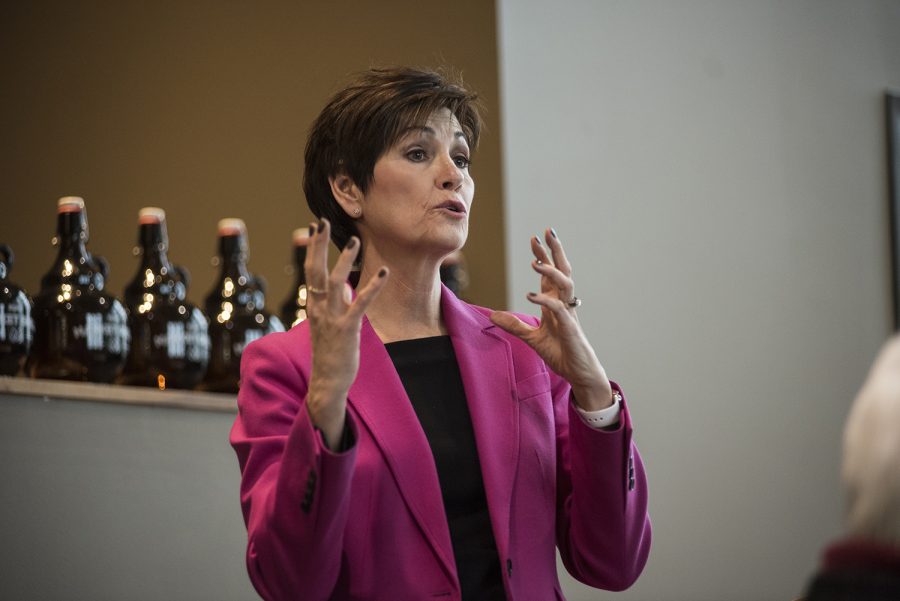Opinion: Group to focus on criminal-justice reform is a good move by Reynolds
The governor’s efforts have an opportunity to better communities across Iowa.
Kim Reynolds talks at Hy-Vee in Coralville during her 99 Counties tour on Thursday, April 5, 2018.
October 22, 2019
Last week, Gov. Kim Reynolds announced the formation of the Governor’s Working Group on Criminal Justice Reform. The formation of the group is in response to Reynolds’ efforts to reduce criminal activity and offer re-entering citizens a second chance.
Earlier this spring, Reynolds vocalized her support for the restoration of felon-voting rights by initiating and mobilizing new voting-rights applications for felons as they re-enter their communities.
Since then, she has continued to remain loyal to her unwavering belief in the reconciliation of people who have spent time in prison by taking further strides in criminal justice.
It’s imperative that Iowa leans into the mobilization of restoration, reconciliation, and unity among communities — especially within criminal-justice reform.
“Iowans recognize the power of redemption and second chances, which is why I have made criminal justice reform a key priority for my administration,” the governor’s website said.
The relief that stems from this kind of redemption is rooted in the fact that Reynolds is not only communicating the change she desires to see within communities across Iowa, but she is acting on it and inviting others across the state within their own communities to do so right along with her.
Though membership of Reynolds’ committee has yet to be revealed in its entirety, the trajectory has been made clear to those following along.
As of now, the only person that Reynolds has appointed to her committee is Lt. Gov. Adam Gregg. He has served as the former state public defender and will serve as the chairman of Governor’s Working Group. The rest of the members will be announced in the coming weeks.
But before the members’ names are released, Iowans can be assured that the committee’s purpose will surpass the restoration of voting rights and ease transitions back into communities by addressing the larger, more deeply rooted issue: the need for an unbiased justice system.
According to the website, “over the course of 2020, the committee will also take up the very complex issue of unbiased criminal justice in Iowa, looking at the full range of issues including policing, prosecution, and corrections practices.”
Reynolds has expanded beyond restoration of voting rights to felons and continues to surge forward in pursuing reconciliation and redemption within criminal-justice reform as a whole.
It’s important that Reynolds continues to address these areas that deserve attention — one of them being the strides to help re-entering citizens have a successful re-entry. While she has encouraged communities to move in the direction of criminal justice with her, Reynolds is leading the conversation.
The Governor’s Working Group on Criminal Justice Reform can be a platform for people to encourage and encounter criminal justice on a statewide level.
Columns reflect the opinions of the authors and are not necessarily those of the Editorial Board, The Daily Iowan, or other organizations in which the author may be involved.



